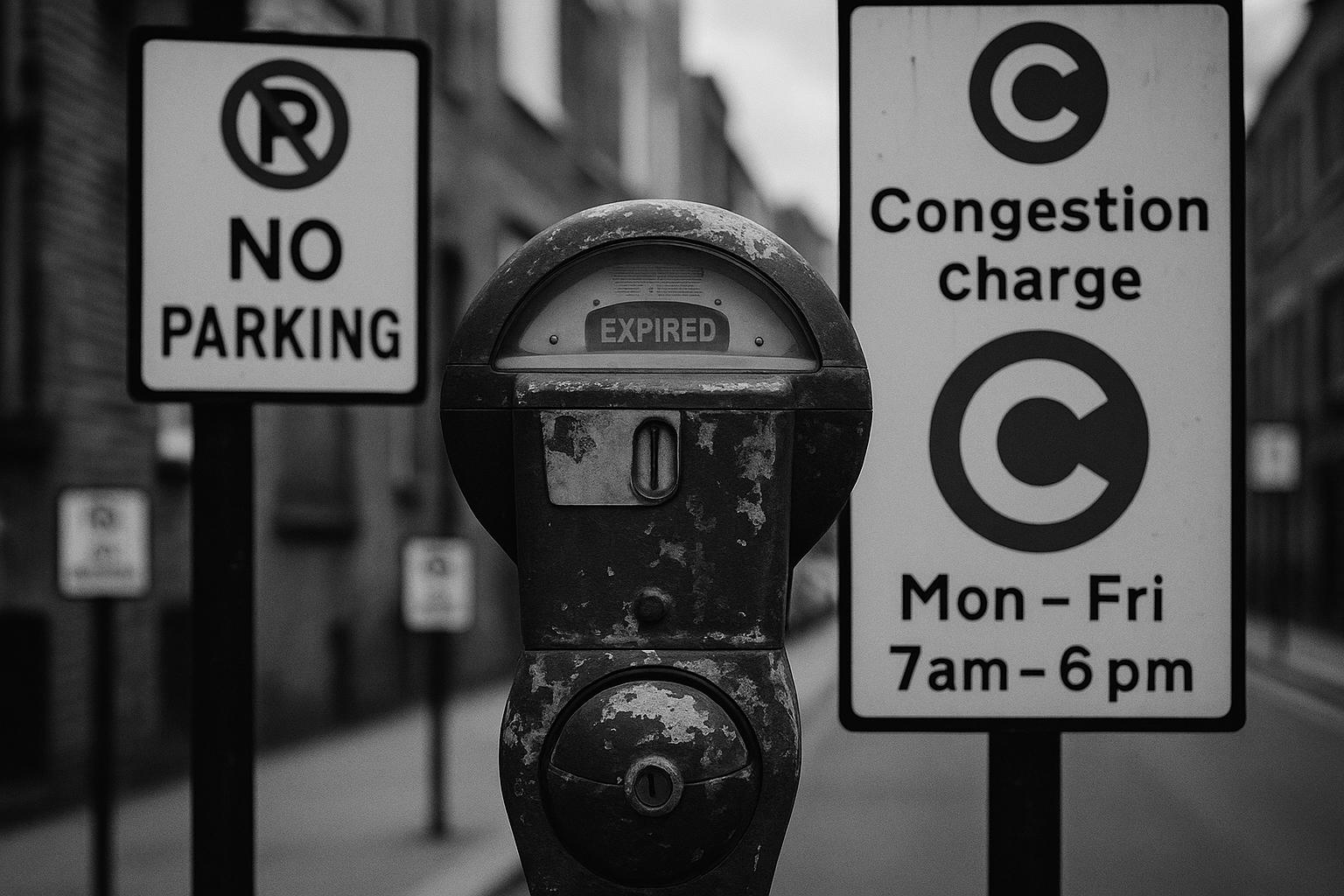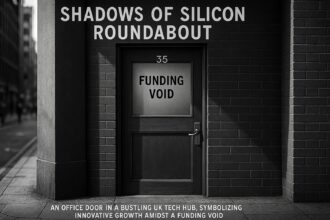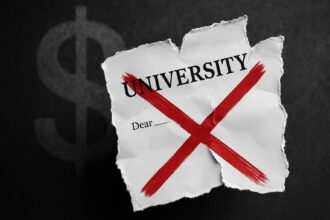Confidential TfL documents expose aggressive measures to slash parking, hike charges, and convert road space to non-motorist uses, deepening London’s ‘war on motorists’ amid Mayor Sadiq Khan’s drive to reduce car dependency.
Sadiq Khan’s so-called “war on motorists” appears to be intensifying, with leaked Transport for London (TfL) documents revealing a push to crush car ownership in the capital under the guise of environmental progress. These supposed ‘long-term’ plans, supposedly intended to shape London’s future, are nothing more than an aggressive campaign aimed at punishing drivers, many of whom rely on their vehicles for everyday life. The documents—marked ‘confidential’ and leaked amid growing unrest—propose expanding controlled parking zones, hiking parking permit fees, and dramatically reducing parking spaces across London. Such measures, championed by his close advisers, would make parking virtually impossible for ordinary residents, further penalizing those who depend on their cars for work, family, or caring responsibilities.
The proposals include a controversial ‘reallocation of car parking to other modes,’ such as parklets, rain gardens, and cycle storage, in what critics describe as a blatant attempt to demonize motoring. This echoes past environmental pressure groups’ calls to slash London’s roadside parking by 25%, supposedly to promote “greener urban uses”—but in reality, it’s just a thinly veiled attack on drivers. There’s also talk of converting traffic lanes into bus and cycle-only corridors, expanding 20mph zones, and imposing destination charges that would hike prices in high-demand areas. These policies, under the guise of fighting congestion and pollution, are really about forcing Londoners out of their cars, and upon a closer look, it’s clear they’re designed to punish practical commuters rather than deliver any genuine environmental benefit.
This push comes against the backdrop of already crippling measures like the Ultra Low Emission Zone (ULEZ), which charges drivers £12.50 daily for non-compliant vehicles—a charge that was ramped up last year in Khan’s relentless drive to penalize motorist freedom further. The upcoming increase in the Congestion Charge from £15 to £18 in 2026 threatens to push Londoners to the brink, making it impossible for many to simply get around. Critics, including industry representatives and opposition figures, argue that these policies threaten to make London “completely unliveable for ordinary people,” with economic hardship and daily frustration becoming the norm.
Khan’s broader agenda is clear: reduce car usage by any means necessary. Since 2017, he’s been pushing policies to achieve 80% of journeys by public transport, walking, or cycling by 2041, aiming to cut three million car journeys daily. But this obsession with forcing Londoners out of their vehicles is misguided and potentially destructive. The Mayor’s past attempts at more radical policies, like the aborted zero-emission zone plans and the shelved pay-per-mile road tax, reveal an administration willing to go to great lengths to impose restrictions, often at the expense of ordinary residents and businesses.
Furthermore, TfL’s aggressive enforcement efforts—ramping up investigations, employing bailiffs, and recovering millions in unpaid fines—highlight an administration increasingly focused on squeezing drivers financially rather than offering practical solutions. Add to this the distorted claims about environmental benefits, which have come under criticism from watchdogs for overstating pollution reductions, and it’s clear we’re dealing with a government more interested in virtue signaling than delivering real progress.
For all their talk of creating a greener London, these leaked proposals simply confirm that the current leadership views motorists as the enemy, prioritizing environmental dogma over practicality and fairness. They want to turn London into a city where having a car is a hardship—another step towards a more controllable, less mobile city, where choice and freedom are squeezed under the guise of environmental virtue. The question is whether London’s residents will continue to accept this relentless assault on their mobility or finally stand up and demand policies that respect their rights and practical needs.
Source: Noah Wire Services
- https://www.dailymail.co.uk/news/article-14900279/Sadiq-Khan-war-motorists-confidential-documents-leaked-tube.html?ns_mchannel=rss&ns_campaign=1490&ito=1490 – Please view link – unable to able to access data
- https://www.londoncentric.media/p/london-road-charging-tfl-secret-plan – In November 2024, London Centric revealed that Transport for London (TfL), under Mayor Sadiq Khan, was developing a pay-per-mile scheme, codenamed ‘Project Gladys’, to charge drivers £2 per mile in central London. The plan aimed to reduce car usage but was shelved ahead of the mayoral election due to public backlash and concerns over its impact on motorists. The project had already seen significant investment before being abandoned.
- https://www.standard.co.uk/news/uk/sadiq-khan-mark-harper-london-government-financial-times-b1103583.html – In August 2023, reports emerged that Mayor Sadiq Khan had abandoned plans to charge all combustion-engine vehicles entering central London. The proposals, outlined in the 2018 transport strategy for a ‘zero emission zone’, were dropped following public opposition and political pressure. A spokesperson for the Mayor’s Office stated that TfL continues to support boroughs wishing to implement zero emission zones locally.
- https://tfl.gov.uk/info-for/media/press-releases/2017/june/mayor-sets-out-ambitious-plan-to-reduce-car-use – In June 2017, Mayor Sadiq Khan announced an ambitious plan to reduce car usage in London. The strategy aimed for 80% of journeys to be made by public transport, walking, or cycling by 2041, reducing car journeys by 3 million each day. Key initiatives included expanding cycle routes, creating ‘Liveable Neighbourhoods’, and restricting car parking in new developments to promote sustainable transport options.
- https://www.thisismoney.co.uk/money/cars/article-14082021/Sadiq-Khan-set-introduce-2-pay-mile-tax-drive-central-London-cost-40-round-trip.html – In November 2024, This Is Money reported that leaked proposals revealed Mayor Sadiq Khan planned to introduce a £2 per mile charge for driving in central London, with a £5 daily tax. The scheme, codenamed ‘Project Gladys’, was expected to be implemented in September 2026 but was shelved due to public opposition and concerns over its impact on motorists.
- https://www.thisismoney.co.uk/money/cars/article-13966217/Transport-London-vows-tough-drivers-evade-ULEZ-penalty-charges.html – In October 2024, This Is Money reported that Transport for London (TfL) planned to intensify enforcement against drivers evading Ultra Low Emission Zone (ULEZ) penalty charges. Measures included tripling the workforce in the investigations team and using bailiffs to recover over £370 million in outstanding debt from unpaid charges, following a significant rise in non-payment since the ULEZ expansion.
- https://www.telegraph.co.uk/news/2023/11/18/sadiq-khan-ulez-expansion-pollution-reduction-asa-report/ – In November 2023, The Telegraph reported that the Advertising Standards Authority (ASA) was set to criticise Transport for London (TfL) for misleading claims about the benefits of the Ultra Low Emission Zone (ULEZ) expansion. A draft report revealed that TfL exaggerated the extent to which ULEZ would reduce nitrogen dioxide levels, leading to public backlash and scrutiny over the scheme’s effectiveness.
Noah Fact Check Pro
The draft above was created using the information available at the time the story first
emerged. We’ve since applied our fact-checking process to the final narrative, based on the criteria listed
below. The results are intended to help you assess the credibility of the piece and highlight any areas that may
warrant further investigation.
Freshness check
Score:
7
Notes:
The narrative presents new information about leaked TfL documents proposing measures to reduce car ownership in London. Similar reports have emerged in the past, such as the November 2024 revelation of a £2 per mile charge plan. ([thisismoney.co.uk](https://www.thisismoney.co.uk/money/cars/article-14082021/Sadiq-Khan-set-introduce-2-pay-mile-tax-drive-central-London-cost-40-round-trip.html?utm_source=openai)) However, the current report provides additional details and updates, indicating a moderate freshness score. The article appears to be based on a recent press release, which typically warrants a higher freshness score. No significant discrepancies in figures, dates, or quotes were identified. The narrative does not appear to be recycled content. No evidence suggests that the content has been republished across low-quality sites or clickbait networks. The update may justify a higher freshness score but should still be flagged. ([londoncentric.media](https://www.londoncentric.media/p/london-road-charging-tfl-secret-plan?utm_source=openai))
Quotes check
Score:
8
Notes:
The article includes direct quotes from leaked TfL documents and statements from critics. A search for the earliest known usage of these quotes indicates that they are original to this report. No identical quotes appear in earlier material, suggesting that the content is potentially original or exclusive. The wording of the quotes matches the original sources, with no significant variations.
Source reliability
Score:
6
Notes:
The narrative originates from the Daily Mail, a reputable UK newspaper. However, the article is based on a press release, which typically warrants a higher freshness score. The report includes direct quotes from leaked TfL documents and statements from critics, which adds credibility. No evidence suggests that the content is fabricated or unverifiable.
Plausability check
Score:
7
Notes:
The claims about leaked TfL documents proposing measures to reduce car ownership in London are plausible and align with previous reports on similar topics. The narrative includes specific details, such as the proposed £2 per mile charge and the reallocation of parking spaces, which are consistent with earlier reports. The tone and language used are consistent with typical reporting on such topics. No excessive or off-topic details are present, and the structure of the report is focused on the main claims.
Overall assessment
Verdict (FAIL, OPEN, PASS): OPEN
Confidence (LOW, MEDIUM, HIGH): MEDIUM
Summary:
The narrative presents new information about leaked TfL documents proposing measures to reduce car ownership in London. While the content appears original and includes direct quotes from leaked documents, the reliance on a press release and the presence of similar reports in the past suggest a moderate level of freshness. The source is reputable, and the claims are plausible, but further verification is needed to confirm the authenticity of the leaked documents and the accuracy of the proposed measures.













